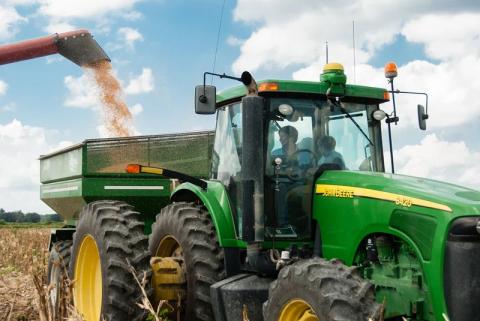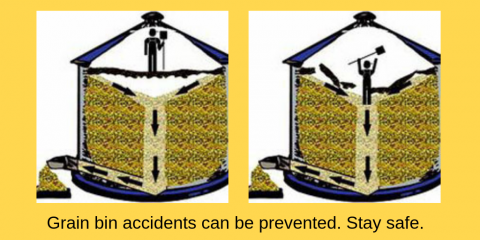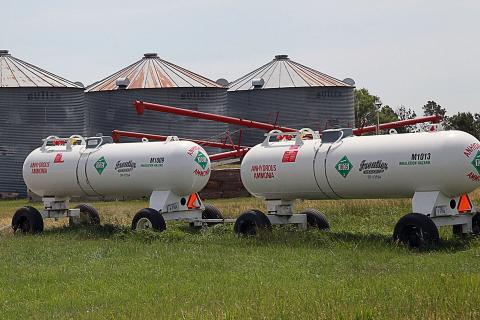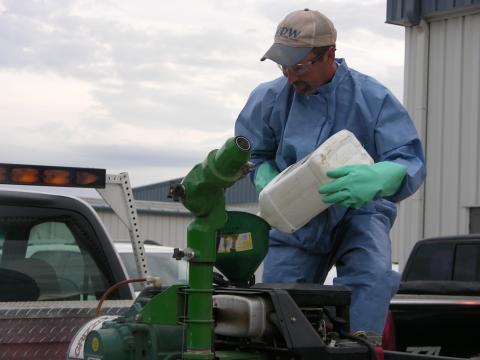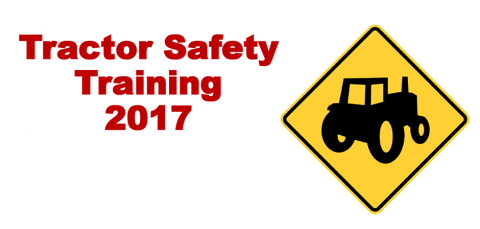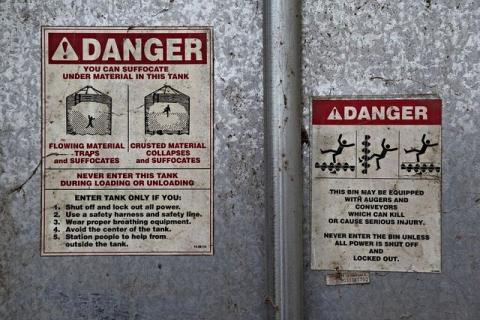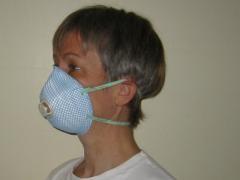Tractor Safety Days Scheduled for Nebraska Teens this Summer
April 14, 2022
Two training locations and six testing locations will be available to Nebraska teens seeking tractor and equipment safety certification.
High Moisture Soybeans Challenge Grain Handler Safety
February 13, 2019
After extended rains last fall, corn and soybean were stored at higher moisture levels than usual, leading to clogs and bridges in stored grain. This week a Nebraska farmer lost his life while trying to empty a bin. Check out these recommendations for staying safe and accessing training.
Anhydrous Ammonia Safety Training in Council Bluffs
November 1, 2018
The Central States Center for Ag Safety and Health is offering hands-on safety training with an anhydrous tank simulator this month. The training is targeted to farmers, elevator and co-op staff, and the public.

Keeping Your Equipment and Fields Fire Safe At Harvest
October 18, 2017
When residue builds up in your combine or poorly maintained equipment creates sparks, fires can ignite, quickly enveloping your equipment and field. Incorporating the practices outlined here into your harvest routine can help you stay safe this fall.
Chemical-Resistant Gloves May Help Prevent Parkinson's
March 14, 2017
One key to pesticide safety is literally in the palm of your hand: wearing proper gloves.
Nebraska Extension Tractor Safety Classes Offered Across Nebraska
March 2, 2017
Nebraska Extension Tractor Safety and Hazardous Occupations Courses will be held at nine sites this year. Teens 14 or 15 years old who will work on a farm should plan to attend.
Grain Engulfment: Quicksand of the Midwest
September 23, 2016
Grain engulfment can take a life in a matter of seconds. Followning these precautions can help keep you safe and always remember to have someone nearby if you do have to enter the bin.
Protect Your Lungs with Properly Fitted Respiratory Masks
September 23, 2016
Working around grain means working around dust and chaff. Dusts have the potential to cause health problems or even permanent lung injury. Breathing dust from stored grain or old hay means breathing in fecal material from rodents and birds, as well as molds, fungus, and bacteria in the enclosed environment.
